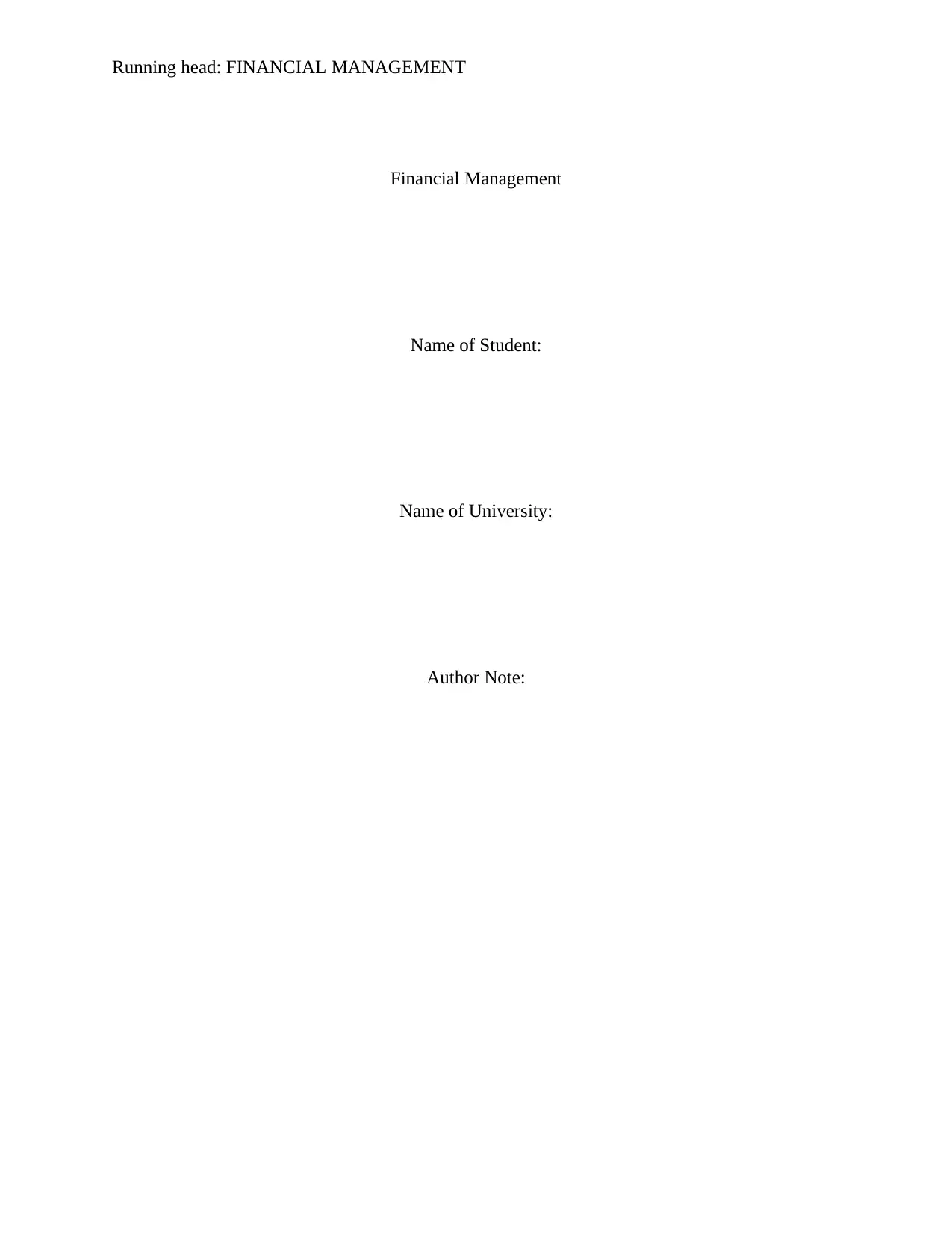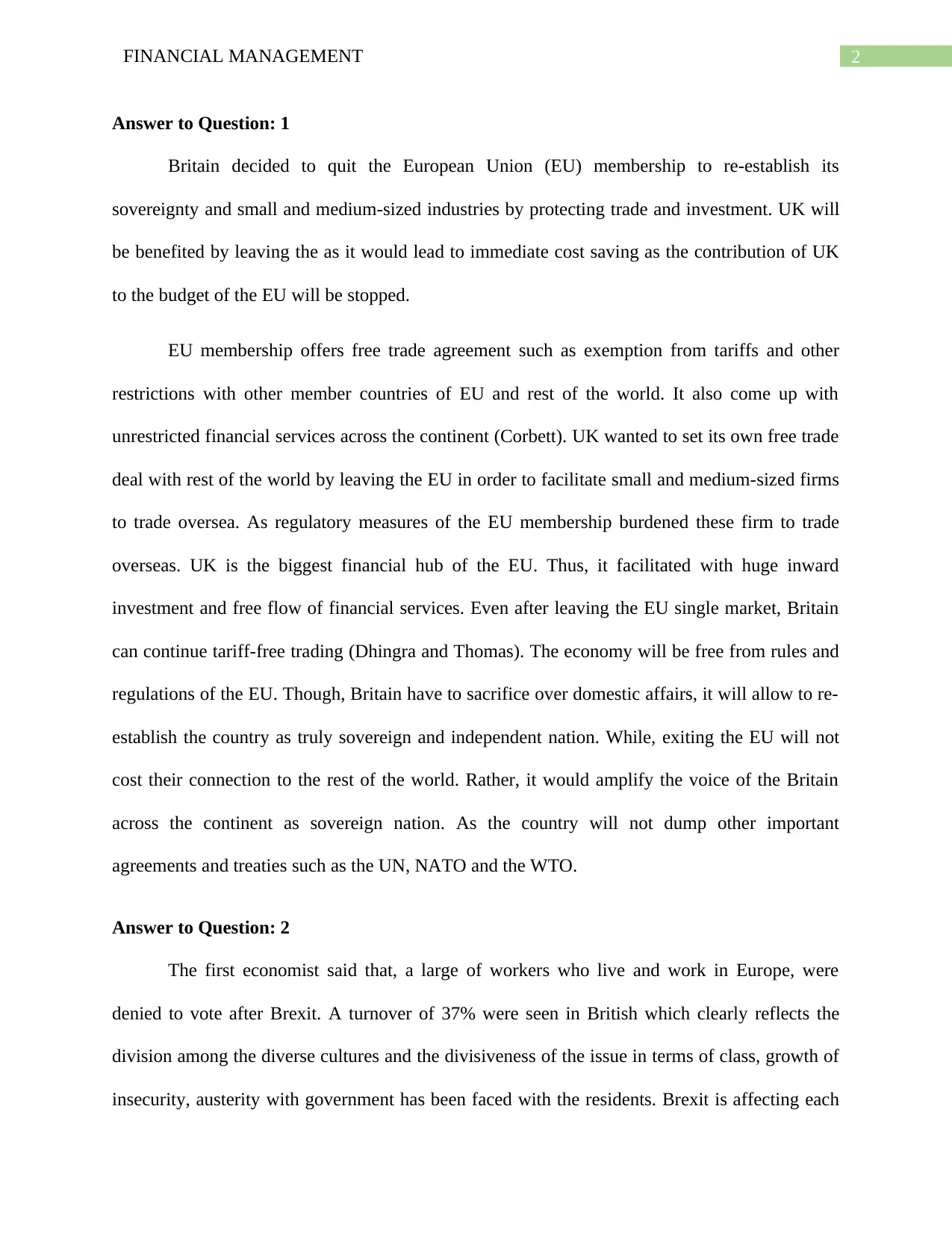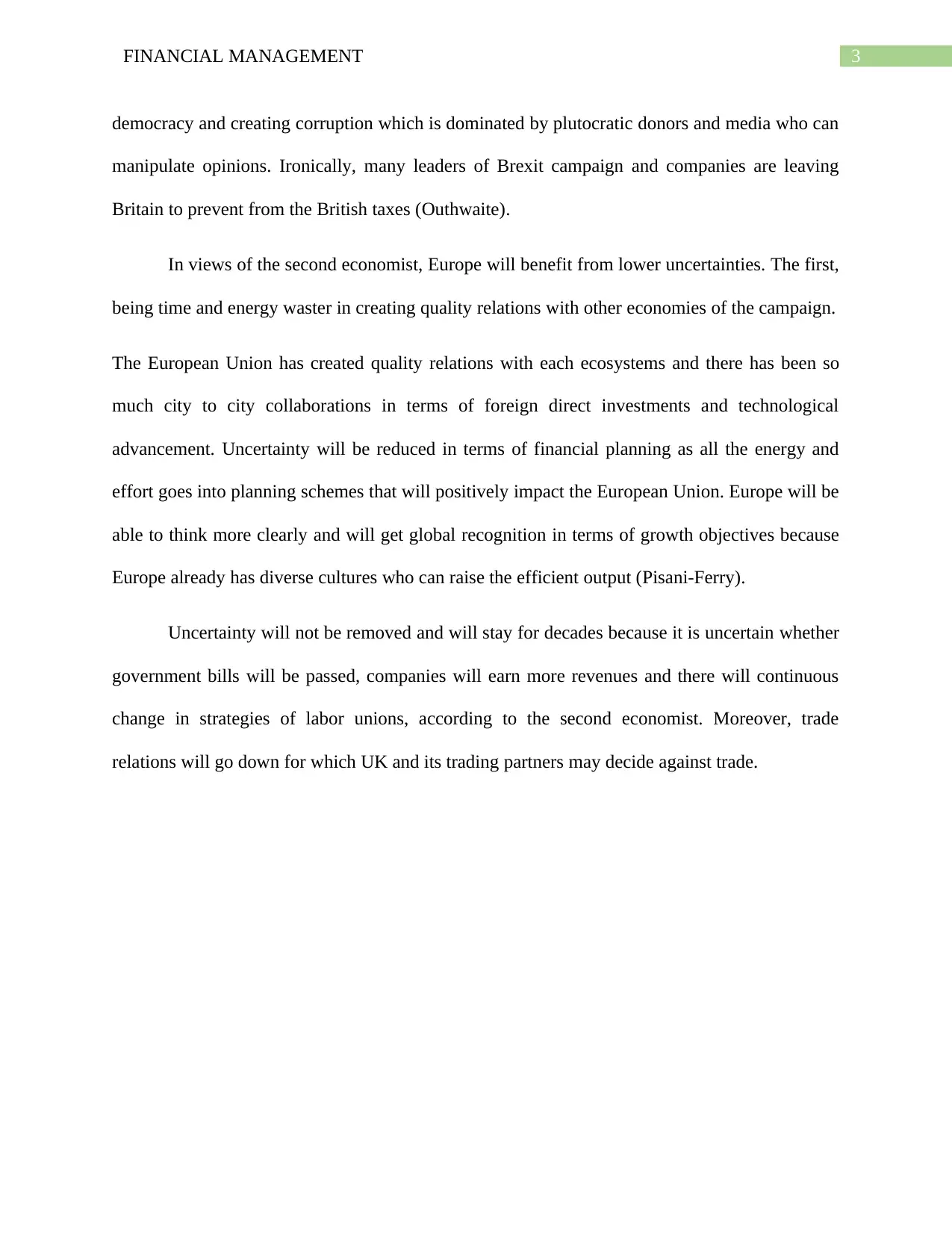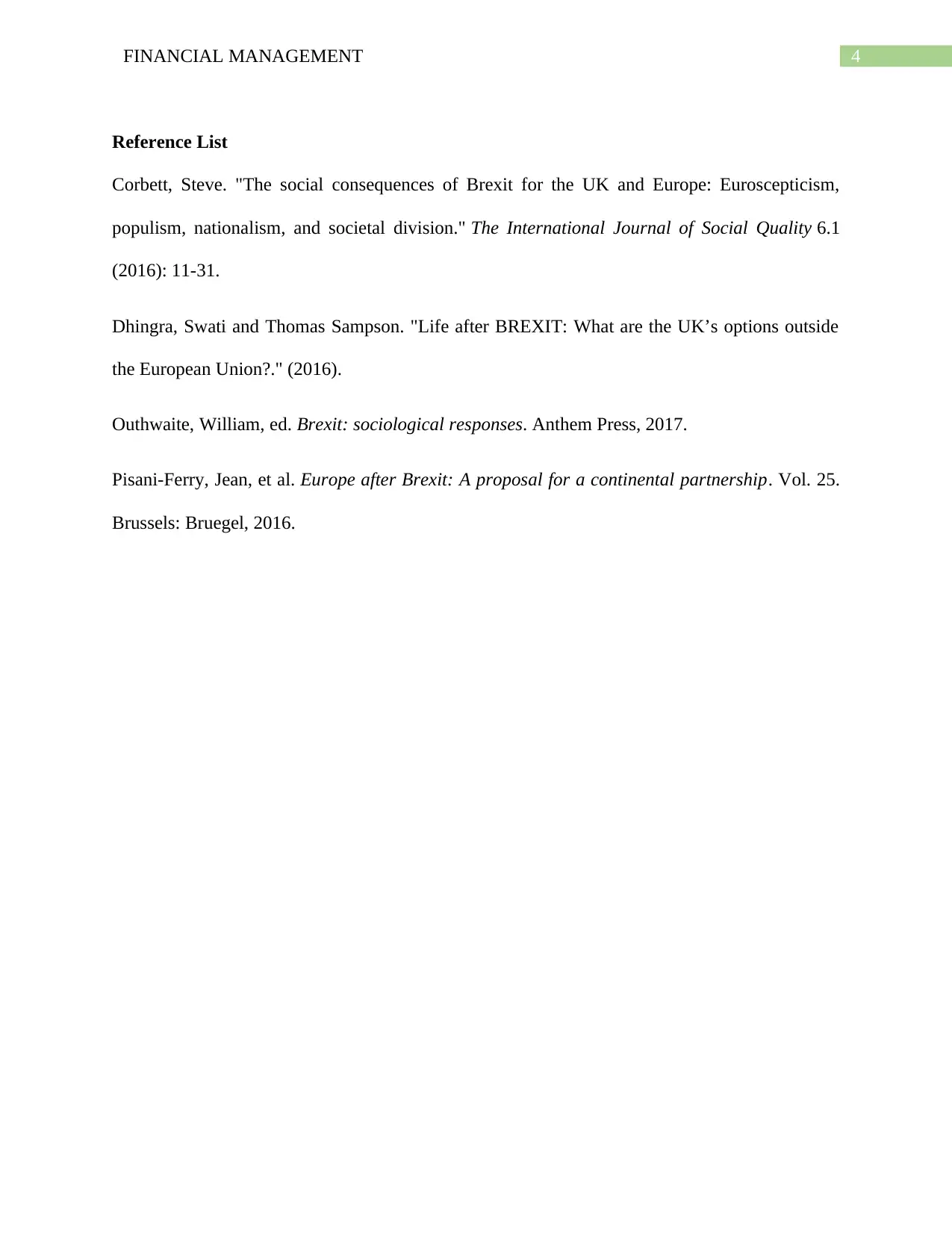Financial Management Report: Brexit's Impact on UK Economy
VerifiedAdded on 2022/12/01
|5
|750
|84
Report
AI Summary
This financial management report examines the economic consequences of Brexit, focusing on the UK's decision to leave the European Union. It analyzes the potential benefits and drawbacks of this decision, including the impact on trade, investment, and financial services. The report presents arguments from different economists regarding the effects of Brexit on the UK and Europe, considering factors such as sovereignty, free trade agreements, and regulatory measures. It explores how Brexit affects various aspects of the economy, including the labor market, trade relations, and financial planning, and offers insights into the uncertainties and challenges that may arise in the coming years. The report references key sources to support its analysis, providing a comprehensive overview of the financial management implications of Brexit.
1 out of 5












![[object Object]](/_next/static/media/star-bottom.7253800d.svg)